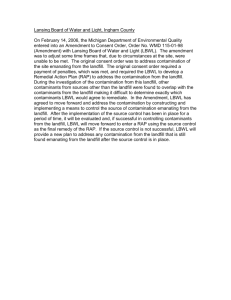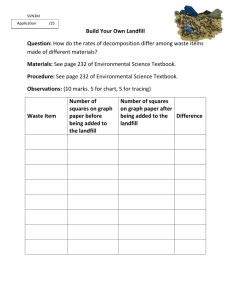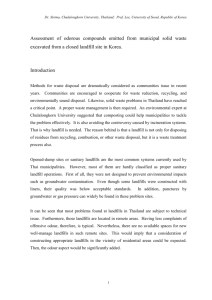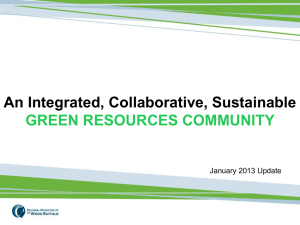Landfills - Yakima Regional Clean Air Agency
advertisement
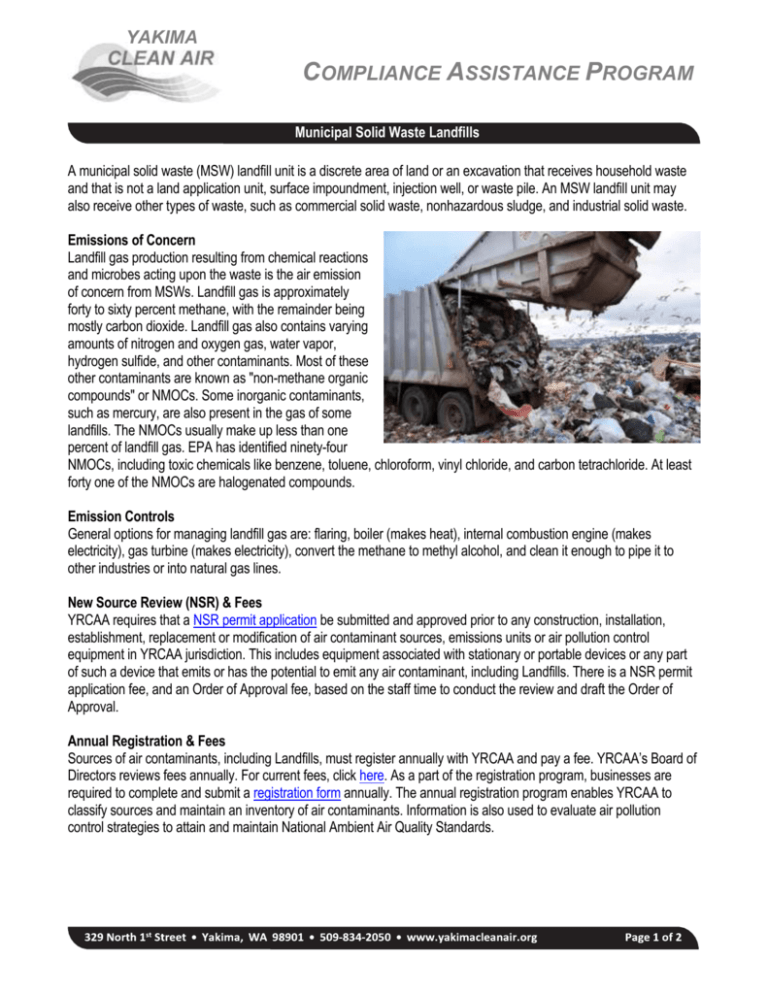
YAKIMA COMPLIANCE ASSISTANCE PROGRAM Municipal Solid Waste Landfills A municipal solid waste (MSW) landfill unit is a discrete area of land or an excavation that receives household waste and that is not a land application unit, surface impoundment, injection well, or waste pile. An MSW landfill unit may also receive other types of waste, such as commercial solid waste, nonhazardous sludge, and industrial solid waste. Emissions of Concern Landfill gas production resulting from chemical reactions and microbes acting upon the waste is the air emission of concern from MSWs. Landfill gas is approximately forty to sixty percent methane, with the remainder being mostly carbon dioxide. Landfill gas also contains varying amounts of nitrogen and oxygen gas, water vapor, hydrogen sulfide, and other contaminants. Most of these other contaminants are known as "non-methane organic compounds" or NMOCs. Some inorganic contaminants, such as mercury, are also present in the gas of some landfills. The NMOCs usually make up less than one percent of landfill gas. EPA has identified ninety-four NMOCs, including toxic chemicals like benzene, toluene, chloroform, vinyl chloride, and carbon tetrachloride. At least forty one of the NMOCs are halogenated compounds. Emission Controls General options for managing landfill gas are: flaring, boiler (makes heat), internal combustion engine (makes electricity), gas turbine (makes electricity), convert the methane to methyl alcohol, and clean it enough to pipe it to other industries or into natural gas lines. New Source Review (NSR) & Fees YRCAA requires that a NSR permit application be submitted and approved prior to any construction, installation, establishment, replacement or modification of air contaminant sources, emissions units or air pollution control equipment in YRCAA jurisdiction. This includes equipment associated with stationary or portable devices or any part of such a device that emits or has the potential to emit any air contaminant, including Landfills. There is a NSR permit application fee, and an Order of Approval fee, based on the staff time to conduct the review and draft the Order of Approval. Annual Registration & Fees Sources of air contaminants, including Landfills, must register annually with YRCAA and pay a fee. YRCAA’s Board of Directors reviews fees annually. For current fees, click here. As a part of the registration program, businesses are required to complete and submit a registration form annually. The annual registration program enables YRCAA to classify sources and maintain an inventory of air contaminants. Information is also used to evaluate air pollution control strategies to attain and maintain National Ambient Air Quality Standards. • • • YAKIMA COMPLIANCE ASSISTANCE PROGRAM Inspections Regular inspections of registered sources are conducted to verify compliance with air pollution regulations. When inspecting Landfills, the compliance team will: review records, including [list records]; determine if any changes have been made to processes, equipment, materials or fuels; observe operation and maintenance activities; determine if any violations exist; and determine if any corrective actions are needed to avoid enforcement. If you have already installed a Landfill or have installed or modified a process or any equipment within a Landfill, or are planning to in the future, please contact YRCAA. Our staff is available to assist you with the permit and registration process. YRCAA Rules YRCAA Regulation 1, Subsection 4.01 State Rules WAC 173-400 – General Regulations for Air pollution Sources Federal Rules EPA has rules for control of hazardous air pollutants (HAPs) called maximum achievable control technology (MACT) standards. To determine if your facility, equipment or operation is subject to a MACT standard see the following links: http://www.epa.gov/airtoxics/mactfnlalph.html http://www.epa.gov/ttn/atw/area/compilation.html • • •
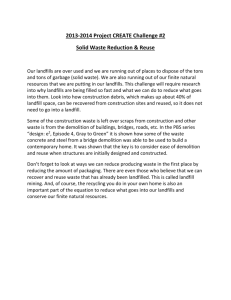

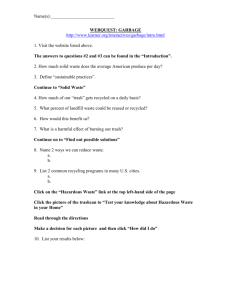
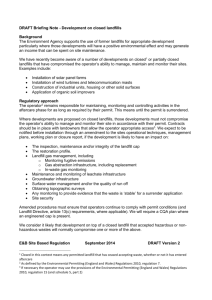
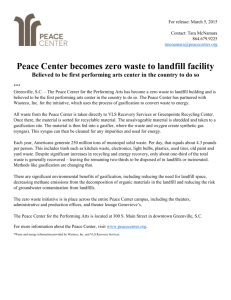
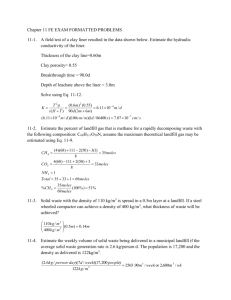
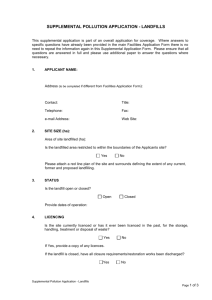
![Job Description [DOCX - 46 KB]](http://s3.studylib.net/store/data/006796150_1-234d988c32268468d66802e573122cf6-300x300.png)
